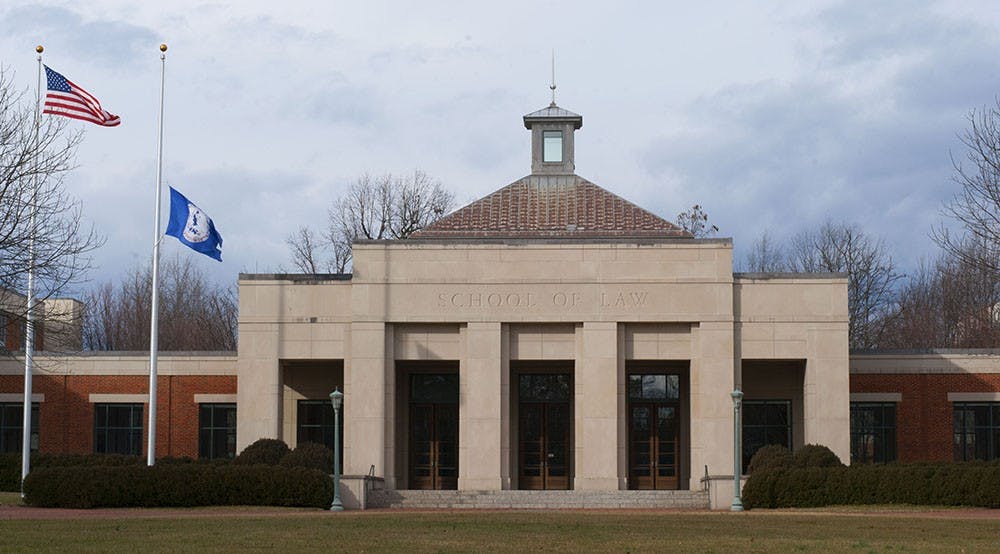Today the Supreme Court will begin hearing oral arguments for the case Obergefell v. Hodges.
Same-sex couple James Obergefell and John Arthur filed a claim July 13, 2013, alleging the state of Ohio discriminates against same-sex couples married in another state. Arthur was terminally ill and wanted to identify Obergefell as his surviving spouse on his death certificate. When Arthur died, U.S. District Court Judge Timothy Black ordered Ohio authorities to recognize same-sex marriages on death certificates, stating the state’s ban on same-sex unions is unconstitutional. Black’s order applies only to death certificates, and the suit to overturn Ohio’s ban on same-sex marriage continues.
The 6th Circuit reversed the lower court’s ruling Nov. 6, 2014 and upheld the state’s ban on marriage equality. The Supreme Court accepted Obergefell v. Hodges for review Jan. 16.
Law Prof. A.E. Dick Howard, an expert on constitutional law and the Supreme Court, noted the effect the Supreme Court’s decision could have on marriage equality.
“It’s clearly something on which the Supreme Court will have the final word, and if they decide in favor of gay couples, that will create a national ruling,” Howard said. “Traditionally, marriage has been defined by the states. But when that interest collides with the argument of human dignity and rights, it overrides the state’s claim.”
Law Prof. Deborah Hellman, an expert in constitutional law — particularly discrimination and equal protection — emphasized the Supreme Court’s ultimate power over states and its legal duty to ensure state laws fall in accord with the Constitution.
“If state laws violate our Constitution, the court is required to say so, even if they think it would be better if they left it to the state,” Hellman said. “People make the argument that it would be better in the long run for gays and lesbians to wait for the states to change… [but] if a state law violates the Constitution because it doesn’t treat some people as equals, the court has to strike that down.”
Howard referenced several Supreme Court decisions that could act as a precedent to encourage national recognition of same-sex marriage.
“In Loving v. Virginia the Supreme Court struck down Virginia’s ban on interracial marriage,” Howard said. “So in that case, the interest in racial equality was stronger than the state’s claim to define marriage.”
Howard said he also believes a Supreme Court ruling in favor of same-sex marriage would encourage more acceptance of same-sex couples, just as anti-discriminatory rulings in the 1950s and 1960s reflected a growing acceptance of racial equality.
“I think it may have as hydraulic effect as Brown v. Board did,” Howard said. “It seemed to me to encourage a view of racial equality. There will be states that oppose a Supreme Court ruling, and there will be officials who stand in the way.”
Howard said if the Supreme Court holds in favor, the decision will help encourage a majority settlement of acceptance.
“Parts of the country will oppose, but over the long haul, there’s a relationship between what the Court does and the mood of the country at large,” Howard said. “If the Court comes out in favor, that will probably be in sync with the direction the county in large is heading.”
Hellman said the Supreme Court’s action in favor of same-sex couples is absolutely necessary on the grounds of equal protection, but most importantly, on the grounds of equality.
“If the court decides that no state can restrict marriage to opposite sex couples, it’s going to change things all over the country. But [in states with civil union laws] gay and lesbian couples may get all the tangible benefits of marriage without the recognition that their unions are equal to marriage,” Hellman said.
In addition, Hellman emphasized the wide-ranging importance of Obergefell vs. Hodges for the University community and beyond. Noting the rapid change of public opinion regarding same-sex marriage, Hellman named this issue one of the defining civil rights movements for this generation.
“Equal rights of gays and lesbians are one of the important civil rights issues of our era, and treating all members of our community with equality and respect is something everyone should care about,” Hellman said. “It’s a major civil rights case, it’s going to have implications for either [students themselves] or people [students] know and [the case is] what it’s about to be a community who treats each other as equals.”







